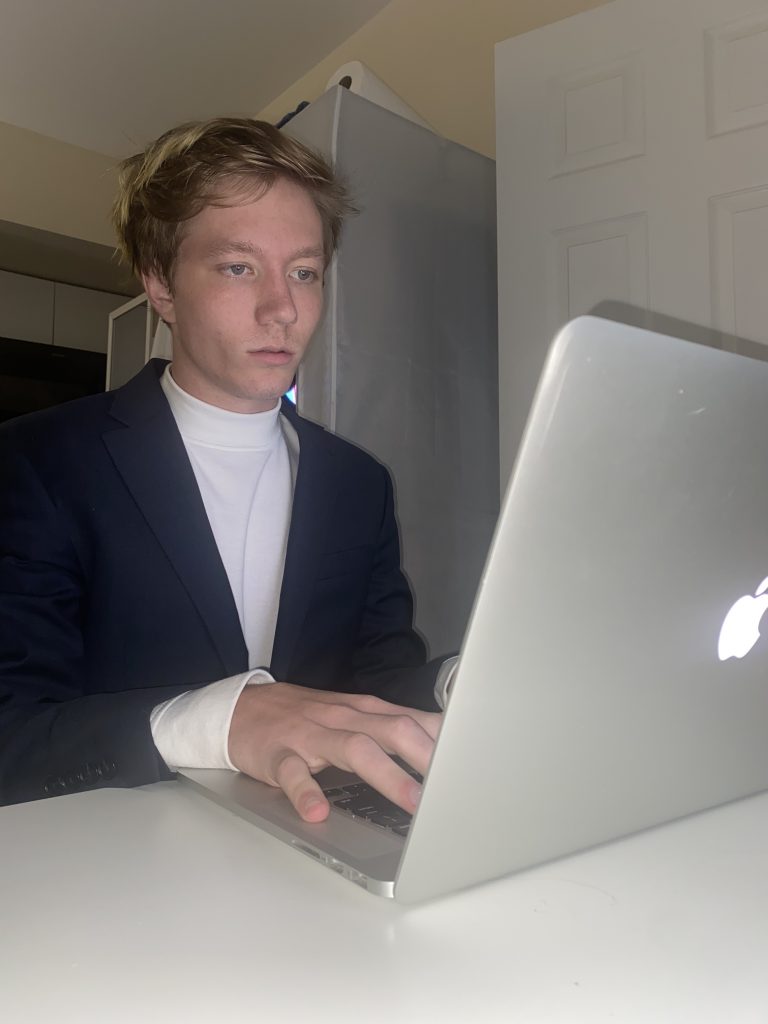
Carson Price ’23 — I would like to first take the opportunity to thank the Wabash Public Policy Project for providing me the funding to make my summer internship possible. More specifically, I owe a debt of gratitude to both Dr. Lorraine McCrary, my advisor who put me in contact with the WPPP, and Lewis McCrary, the director of the WPPP. The funding from the WPPP allowed me to live in Philadelphia for the extent of my internship and network with several other interns and professionals associated with my internship. Without the guidance and financial support of the WPPP, I would’ve never been able to gain the experiences I did over this summer.
Over the summer, I worked at the University of Pennsylvania as a research intern for the Think Tank and Civil Societies Program; a program led by Dr. James McGann, a Senior Lecturer of International Studies at the University of Pennsylvania. The TTCSP, founded in 1989, has worked for decades to conduct large-scale research on policy institutes around the world. As a research intern, I was specifically assigned to the North American team which was tasked with analyzing the think tank landscape of Mexico, the US, and Canada. Working alongside a team of 11 other interns, I conducted extensive literature reviews, analysis, data collection, and data modeling regarding the state of think tanks in a political landscape dealing with the shocks of COVID-19.
In just over two months, my team produced a presentation of over 80 slides, as well as a literature report totaling 60 pages. Alongside these reports, we maintained and updated a bibliography totaling over 700 sources, and a database of think tanks totaling nearly 2200. My most significant contribution was an extensive literature review and 10-page report on the relevant issues that think tanks in North America are currently facing, as well as an 8-page report on the policy recommendations that think tanks have made to alleviate some of the pressing issues that Mexico faces. Alongside these reports, I worked to produce multiple bivariate analyses of different variables analyzed in our database including think tank budgets and staff size. With such a short time frame and a high volume of work to produce, our deadlines were extremely short, and our assignments were very demanding. The sheer volume of work forced me to further develop my skills of time management, quality assurance with quick turnarounds, and working to shorten my writing process while not sacrificing my writing quality.
The internship culminated in the presentation of my teams’ findings to an audience of think tanks executives, political writers, and policymakers from around North America. Included in the audience were the President of the Brookings Institute, President of the Migration Policy Institute, Vice President of the Heritage Foundation, and several other key leaders of the think tank world. Having the opportunity for the work that my team and I did over the summer to be presented to such a distinguished audience was both exciting and nervous, but the approval and praise we received for our research and report made the long days and nights of work worth every hour. The internship confirmed my interest in policy and cemented the idea of potentially working for a think tank in the future in my head. Along with this, the internship allowed me the opportunity to expand my network of colleagues and mentors and put me in a much better position to connect with other think tanks for future internships and employment opportunities